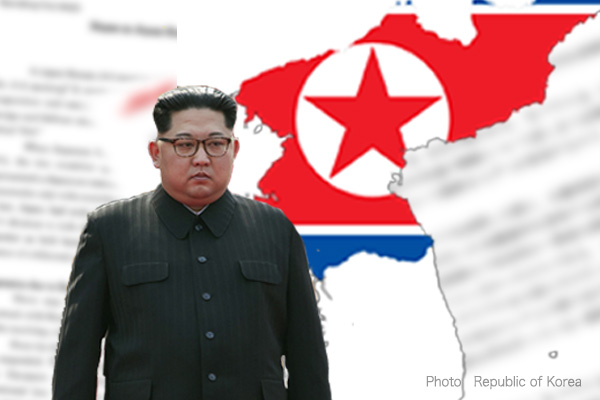On October 4, North Korea fired a ballistic missile that flew an estimated 4,600 kilometers. Given the flight distance indicating that the missile could reach the key U.S. miliary base of Guam in the western Pacific, the missile firing was clearly a warning to the United States.
In this respect, I am concerned that the U.S. Biden administration might repeat a historic diplomatic mistake that came under the George W. Bush administration in regard to North Korea.
Bush administration mistakenly eased pressure
On October 9, 2006, North Korea conducted its first ever nuclear explosion test. As was the case with the current missile firings, a midterm U.S. election was to take place in a month. In the election, Bush’s Republican Party lost a majority in both houses of the Congress as voters grew dissatisfied with Iraq war quagmire.
Just after the election, Defense Secretary Donald Rumsfeld was fired. He and then Vice President Dick Cheney were known for their hardline policy toward North Korea. In two years to the end of his second term, President Bush left then Secretary of State Condoleezza Rice and Assistant Secretary for East Asia and the Pacific Christopher Hill to deal with North Korea under their belief that pressure would impede talks. Since the United States lifted financial sanctions on North Korea in February 2007, Rice and Hill endlessly eased pressure like rolling down a hill.
The financial sanctions mainly targeted Chinese banks that had accepted dirty money earned by North Korea through drug trafficking and currency counterfeiting. The lifting of the sanctions allowed North Korea to recover from difficulties and revived criminal relationship between China and North Korea.
Rice’s memoir includes a passage that attracts attention:
In mid-January 2007 when Rice arrived in Berlin, Hill, who was also there for talks with North Korea, was waiting while being “clearly excited.” Hill told Rice that a North Korean negotiator came up with a proposal to freeze nuclear development in exchange for the lifting of financial sanctions. Hill indicated the negotiator acted “beyond instructions from Pyongyang” and insisted he would like to immediately respond to the proposal because the North Korean delegation was to leave next day.
Rice immediately telephoned President Bush and strongly urged him to accept the proposal, saying “We have a chance to get this thing off the ground but it won’t be there tomorrow.”
If the North Korean negotiator voluntarily made a concession beyond instruction by then North Korean dictator Kim Jong Il, the negotiator would have been executed or put into prison immediately after returning home. I cannot but to bemoan how easily senior U.S. officials succumbed to North Korea’s common ploy of causing a flutter.
Japan should warn Biden
Robert Gates who succeeded Rumsfeld as defense secretary was Rice’s long-time ally. There is no record that Gates disagreed with Rice-led diplomacy.
Gates remained defense secretary in the Obama Democrat administration and has been highly appreciated by “moderates” from both parties. After leaving the post, he publicly proposed that Washington should allow North Korea to have some 20 shorter-range nuclear missiles if it discontinues to develop a long-range missile that could reach the U.S. mainland. Such proposal is out of the question for Japan.
The Rice-Hill approach featuring the unprincipled relaxation of pressure enlivened the North Korean regime, prevented the issue of North Korea’s abduction of Japanese citizens from being resolved and accelerated North Korea’s nuclear and missile development. It represented a typical failure of U.S. diplomacy. North Korea seems prepared to conduct another nuclear explosion test in the near future. Japan’s Kishida administration has to warn the U.S. government early against repeating the diplomatic mistake seen in the final days of the Bush administration.
Yoichi Shimada is a senior fellow and Planning Committee mMember, Japan Institute for National Fundamentals, and a professor at Fukui Prefectural University. He follows U.S. politics and diplomacy, especially U.S.-North Korea relations.


